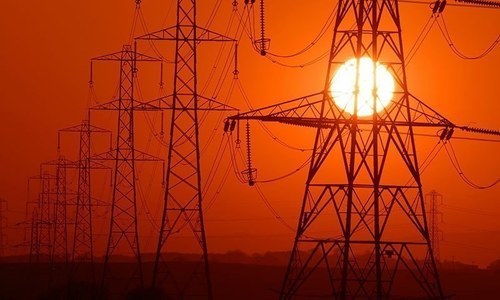LAHORE: In a bid to cut down reliance on the national grid, Punjab plans to generate over 5,000MW electricity — including 300MW through launch of several small hydropower projects — under short, medium and long-term strategies by 2024. The province has also floated tenders to launch construction of 12 mini hydropower projects before June this year, Dawn has learnt.
“Save electricity for yourself and the nation is a slogan of the federal government, but we have slightly changed it for Punjab. ‘Make Electricity for yourself and the nation’ is our slogan,” Punjab Minister for Energy Dr Akhtar Malik said in a conversation with Dawn. “For this, we envision Punjab as an energy-secure province by promoting the renewable energy sector involving optimal use of indigenous resources (hydro, waste and biomass), private sector investment, timely regulatory interventions and efficient energy conservation,” Dr Malik explained.
According to a report, recently shared with the government, Punjab seeks supply of electricity to a number of off-grid villages, setting up generation facilities near load centres/clusters, oil & gas exploration, addition of 300MW solar energy at the 600MW Quaid-e-Azam Solar Park, development of identified 1,000MW wind corridor at Rajanpur, promotion of rooftop solar energy for household, solarisation of public institutes, retrofitting of public institutes and energy conservation building codes.
The province wants to utilisate hydel power potential on Punjab canals and barrages, promote waste to energy projects in urban areas, solar/biogas/wind hybrid solutions for rural electrification, biomass-based power plants in agricultural centres as well as encourage private sector to invest in power sector.
The report mentions that the Punjab Energy Department is working on three different action plans that range from short-term (0-2 years), medium-term (2-5 years) and long-term (5-10 years) in a bid to its objectives under various timelines by the year 2024.
“The government has started work to launch 50MW waste to energy project in Lahore, 100MW Zhenfa solar, 100MW Zorlu solar projects, solorisation of 4,200 schools (6.8MW) in north and south Punjab, solarisation of CM Secretariat and General Hospital in Lahore (over 3MW), Islamia University in Bahawalpur (2.5MW), 2,324 Basic Health Units (7.24MW), 12 DHQ Hospitals (5MW) and various off-grid villages (5MW), 0.550MW solar/biogas hybrid power system in Vehari and Sumandari and commercial operation of 1,263MW Punjab Thermal Power Project at Trimmu, Jhang,” the report adds .
Under the short-term plan, the government seeks to establish its own power transmission/grid company, establishment of energy efficiency and conservation agency as well as standarisation and labelling of motors and air conditioners etc.
The medium-term plan sees completion of 250MW Wind Hydropower Project in Rojhan, Rajanpur, four 120MW waste to energy projects, 135MW Taunsa Hydropower project, 170MW mini hydropower projects (18 sites) and solrisation of 1,000 villages (15MW).
Under the long-term plan, the government envisages completion of another 750MW wind power project in Rojhan, 400MW Solar Power Park each in Rahim Yar Khan and Dera Ghazi Khan and solarisation of 5,000 off-grid villages (150MW).
The government will also complete various studies related to solar, wind, biomass resource mapping of the province based on the World Bank locational studies and establishment of coal park at Rahim Yar Khan.
“Under off-grid electrification, the districts proposed for the pilot project include Dera Ghazi Khan where 905 villages would be connected with the poor distribution system, 865 villages in Bahawalpur, 365 in Layyah, 331 in Muzaffargarh, 326 in Rahim Yar Khan, 325 in Rajanpur, 286 in Lodhran, 256 in Bahawalnagar, 179 in Bhakar and 65 in Mianwali,” the report reads. “These districts have been selected because of having highest multi-dimensional poverty index in Punjab,” it further adds.
Dr Malik said the energy department was also working out various proposals to end dependency of various bulk power consuming (over 150MW) by water and sanitation agencies of Lahore, Gujranwala, Faisalabad, Rawalpindi and Multan from the national grid. Lahore WASA tops among all since it is alone consuming over 85MW electricity to keep running its tube wells for water supply to a huge population,” he said. “Lahore Orange Line train operations also consume 54MW,” he added.
The minister informed that tenders for launch of as many as 12 mini hydropower projects including 5MW Pattan have also been floated.
Published in Dawn, February 6th, 2021














































